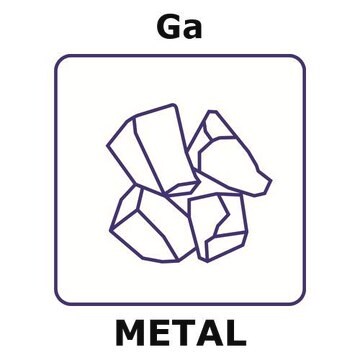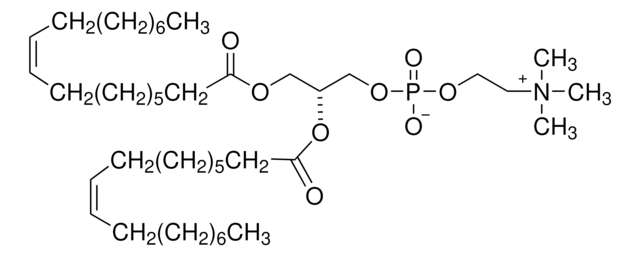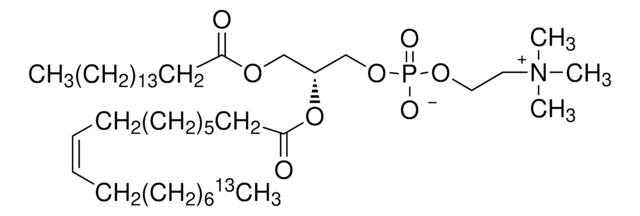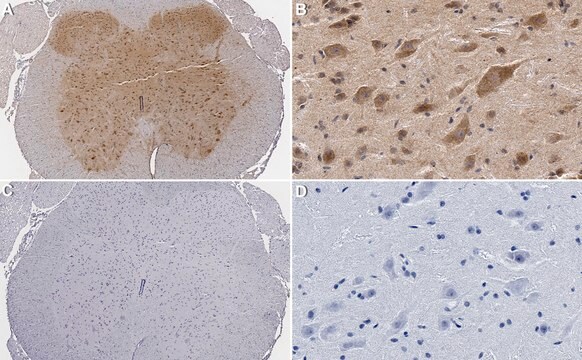ABE2939
Anti-PrimPol
Sinonimo/i:
DNA-directed primase/polymerase protein, hPrimpol1;Coiled-coil domain-containing protein 111
About This Item
Prodotti consigliati
Origine biologica
rabbit
Livello qualitativo
Forma dell’anticorpo
purified antibody
Tipo di anticorpo
primary antibodies
Clone
N/A, polyclonal
PM
calculated mol wt 64.41 kDa
observed mol wt ~65 kDa
Purificato mediante
affinity chromatography
Reattività contro le specie
human
Confezionamento
antibody small pack of 100 μg
tecniche
western blot: suitable
Isotipo
IgG
Sequenza dell’epitopo
C-terminal
N° accesso ID proteina
N° accesso UniProt
Temperatura di conservazione
2-8°C
Informazioni sul gene
human ... PRIMPOL(201973)
Descrizione generale
Specificità
Immunogeno
Applicazioni
Evaluated by Western Blotting in U2OS cell lysate.
Western Blotting Analysis (WB): A 1:1,000 dilution of this antibody detected PrimPol lysate from U2OS cells, but not in cells with PrimPol knockout.
Tested applications
Fluorescence Activated Cell Sorting (FACS): A representative lot detected PrimPol in I Fluorescence Activated Cell Sorting applications (Tirman S., et al (2021). Mol Cell. 81(19); 4026-4040).
Immunocytochemistry Analysis: A representative lot detected PrimPol in Immunocytochemistry application (Tirman S., et al (2021). Mol Cell. 81(19); 4026-4040).
Note: Actual optimal working dilutions must be determined by end user as specimens, and experimental conditions may vary with the end user.
Stato fisico
Stoccaggio e stabilità
Altre note
Esclusione di responsabilità
Non trovi il prodotto giusto?
Prova il nostro Motore di ricerca dei prodotti.
Codice della classe di stoccaggio
13 - Non Combustible Solids
Classe di pericolosità dell'acqua (WGK)
WGK 1
Punto d’infiammabilità (°F)
Not applicable
Punto d’infiammabilità (°C)
Not applicable
Certificati d'analisi (COA)
Cerca il Certificati d'analisi (COA) digitando il numero di lotto/batch corrispondente. I numeri di lotto o di batch sono stampati sull'etichetta dei prodotti dopo la parola ‘Lotto’ o ‘Batch’.
Possiedi già questo prodotto?
I documenti relativi ai prodotti acquistati recentemente sono disponibili nell’Archivio dei documenti.
Il team dei nostri ricercatori vanta grande esperienza in tutte le aree della ricerca quali Life Science, scienza dei materiali, sintesi chimica, cromatografia, discipline analitiche, ecc..
Contatta l'Assistenza Tecnica.








